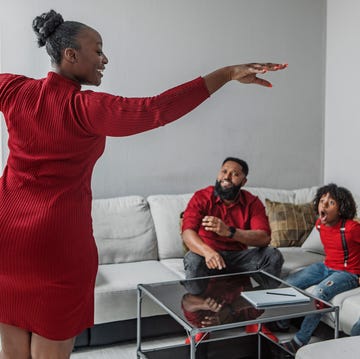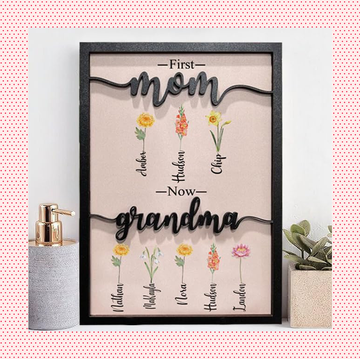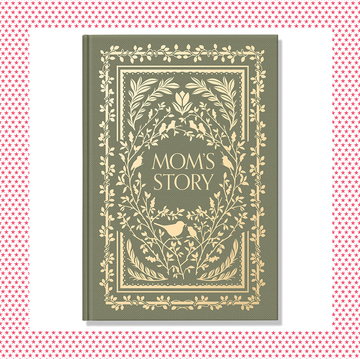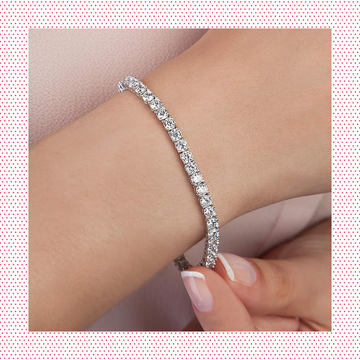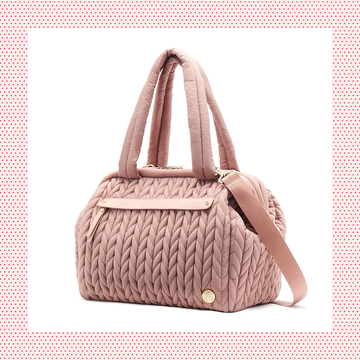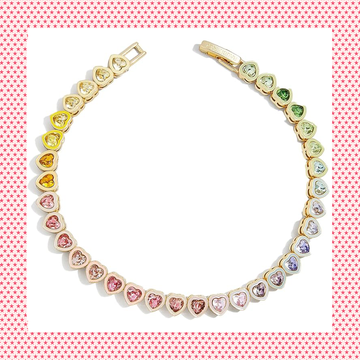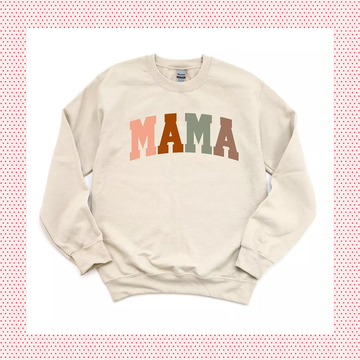Google "break-up" and you'll see, among mentions of the 2006 romcom starring Jennifer Aniston and Vince Vaughn, a slew of websites and articles devoted to getting over an ex-lover. What you won't easily find, however, is information on a type of split that experts say can be just as devastating, maybe even more so, than the dissolving of a romantic relationship—the best friend break-up.
Whether your gal pal moved away and you lost touch, or the two of you had a falling out, a best friend break-up can really take its toll — mainly because these relationships are much more impactful than we realize.
"Research proves that female friendship can make us healthier, happier, less stressed and feel more beautiful," says Debba Hauper, founder of Girlfriendology, an online community devoted to friendship. She notes that bonds with our friends can also be vital to our overall longevity: While studies show that single men don't live as long as married men (because the latter have wives taking care of them), for women, female friends impact their longevity more so than whether or not they're married.
Thus, losing a girlfriend can be an extremely lonely experience, says Irene S. Levine, Ph.D., author ofBest Friends Forever: Surviving A Break-Up With Your Best Friend. "One of the things that makes [a friend break-up] really difficult is that there is no one to talk to about it. The person you'd most want to talk to is the person you broke up with."
The impact is devastating not just because of the break-up itself, but because women lose much more than a friend in this situation. "Women are raised with the idea that friendship is supposed to be forever, and they are often judged by their ability to stay friends, so there is a lot of stigma involved with friends who break up," Levine says.
Jan Yager, Ph.D., author of When Friendship Hurts, agrees, noting how the media romanticizes friendship. She says shows like Sex and the City arepopular mainly because "it's a fantasy for women that they'll have this four-way best friendship in their older years."
Yet, despite the ideals women may believe in and hope for concerning friendship, breaking up with your BFF, to whom you have no familial or legal ties (like you would with siblings or a husband), is rather easy. "Friendship has to be a shared commitment," Yager says. "It takes two to develop and maintain a friendship, but only one to end it."
In light of this, here are five common ways best friends break up, along with advice from the experts on how to weather them:
#1: You live far away from each other.
This break-up is very common: Your BFF moves away for college or a job and, before you know it, you're only talking to each other every few months and getting together in person once a year — if you're lucky. Add in a husband, kids and a different time zone, and it gets even harder to maintain your bond. Yager says that as long as you both have a commitment to keeping the friendship going, this is an easy situation to fix. "Just pick up the phone and set up a time to get together — don't rely on electronic communication," she says. "If you live on opposite ends of the country, meet halfway to share the financial burden of getting together."
#2: You've grown apart emotionally.
You and your BFF just aren't the same as when you sat side-by-side stringing lanyards at summer camp. And, sometimes, Levine says, the differences are just too great. "In college or high school, you are in the same place doing the same thing, you have the same social interests. As you mature, your career takes shape and you develop a relationship with the opposite sex, there might be no common ground anymore." Though, Yager says this situation doesn't necessarily require a break-up. In fact, she notes that "nostalgia friendships," with women you knew as a kid, are important to keep because of how great it can be having people in your life who knew you when you were young.
#3: There was a falling-out.
Sometimes a disagreement or betrayal can send BFFs down the break-up road. Hauper advises to really examine what life would be like without the other person, and to ask yourself if whatever happened is a big enough deal to risk losing that friendship. Yager says it's a question of degree, and situation. "If this is someone you met 20 years ago, you may have more of a reason to keep them in your life than someone you met six months ago" she says. Yager also notes that if you have mutual friends, or a unit of best friends, you might want to try your best to forgive and forget for the good of the group. "Sometimes, the best thing to do is take a friendship sabbatical — you just need some time away from each other," Levine advises. "It's very easy to get quite angry with a friend and once that happens [the friendship] can be irreparable."
#4: You've experienced a "friend-shift."
Yager coined this phrase to describe life events that can dramatically change friendships — such as marrying a man who can't stand your friends — noting this type of break-up is different than growing apart physically, because it's hinged on an outside factor. She said she once interviewed a woman whose best friend was a man — and his new wife forbade the two of them to see each other. Yager says that, in this situation, the woman needed to care enough about her friend to put his marriage as the primary concern. When it comes to a friend-shift, she says, "sometimes you have to just wait it out."
#5: You didn't realize you were breaking up.
This type of break-up occurs when you don't even know your friendship is falling apart — until you do. For example, Yager says, maybe you always remember your friend's birthday, and you go on Facebook one day to see, much to your horror, that it occurred a couple days ago and you forgot. But, sometimes a wake-up call is all it takes. "If you can get a friendship that's starting to wane back on your radar screen, you can save it," she says. The bottom line: Don't be afraid, or too proud, to actively save the relationship. "Friendships need to be forgiving and flexible," Levine says. "If the friendship is important to you, or if you are the one who did something, or didn't do something, there's no problem with being the first person to apologize or offer the olive branch. It's important to do it sooner than later." Hauper says many women assume that female friendships should be easy, but as with any relationship, "Sometimes we do have to work at them … and that's okay.

